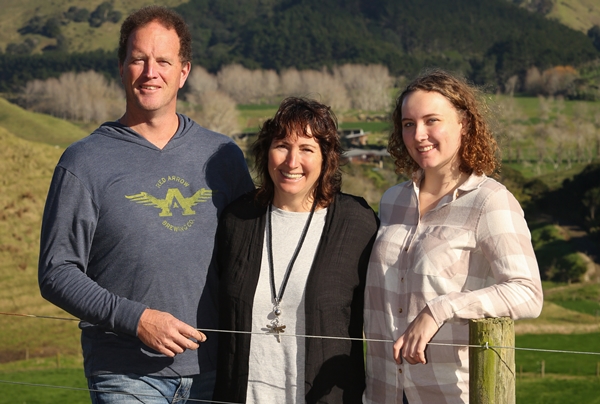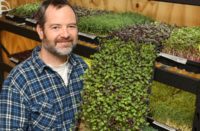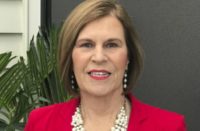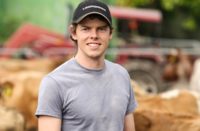
To the Hamiltons of Awhitu (south of Auckland), operating their business sustainably has been a way of life for more than 150 years. Dairy farmers, Andrew Hamilton and his wife Liisa, agree the first far would be surprised at how their business is run, particularly with regards to the technology used and levels of regulation now imposed.
The Hamilton families have ensured the sustainability of their farming businesses, enough to preserve the land for future production. However, Andrew and Liisa have taken sustainability to another level, as evidenced by their hat-trick of accolades at the Ballance Farm Environment Awards.
“Because our family has farmed this area for generations, we have a real connection to the land and the environment here,” Andrew says. “We entered to see how we can improve; it’s as much about working out our weaknesses and how to correct them as winning anything. It was a wonderful experience and we learnt so much.”
The Hamiltons reaped the Sustainability & Stewardship, Agri-Science and Integrated Management awards. Their efforts in regenerating native bush and wetlands, while retiring less productive land, fencing off waterways and targeted use of fertiliser through GPS technology brought specific praise.
“Out of 200 hectares, we dairy farm 110, about 20ha is for beef and the remainder is retired land, either native bush already or set to become so again,” Liisa explains. “We don’t dairy farm in Awhitu because it’s the best country for dairy, it’s because we live here too – our efforts haven’t just been about making the farm better but also [preserving] the beauty of our environment.”
Succession planning and diversification are also vital in the farming business. Beginning as sharemilkers in the early 2000s, Andrew and Liisa later leased the farm before buying it outright from Andrew’s parents.
Looking ahead, two of the couple’s three daughters are prime candidates to pick up where their parents leave off.
“Merle and Erin (14) are most keen to be on the farm. Merle is interested in agriculture and tourism. She sees an opportunity to diversify the business, while Erin would like to be a sheep and beef farmer,” Liisa says.
Andrew and Liisa are hopeful their children will carry on the family’s rich local legacy, but that doesn’t mean they will be able to.
“This land’s proximity to Auckland means it’s becoming harder for the next generation to step in,” Andrew asserts.
Liisa adds: “One of the biggest challenges farming within the Super City is the pressure for housing pushing land prices up. No matter how much you love it, if someone offers you $20 million for your dairy farm, it’s going to be hard not to take that kind of money.”
A rural state of ‘line’
Communications are key to the very survival of modern businesses. And yet, at times, Andrew and Liisa Hamilton may as well be in the back of beyond as within Auckland’s city limits.
“We have satellite internet but that’s very expensive and just too fragile; not reliable. Every farmer in this valley struggles with [poor mobile phone] reception too – we have a multimillion dollar business and sometimes we can’t even make a phone call!”
Cutbacks to postal services – justified by NZ Post due to a reduction in overall demand – are also taking their toll on the Hamiltons’ ability to run their business.
“We don’t feel isolated but definitely frustrated,” adds Andrew. “Even on our coastal farm, where I can look across and see the city, I struggle to get [cell phone] reception. It’s annoying seeing as they’re rolling out 5G and we can’t even get 1G! This whole fibre rollout… I’d just like a good telephone line!”
Frustration may lead to exaggeration – the Government and telcos are on a mission to improve rural coverage – but the family can be forgiven for feeling they’re missing out on (or paying more for) levels of service town folk take for granted.
By Jon Rawlinson



